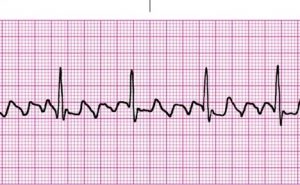

In addition, some substances can contribute to atrial flutter, including alcohol, cocaine, amphetamines, and cold medicines 3. What causes atrial flutter?Ĭauses of atrial flutter include coronary heart disease, myocardial infarction (heart attack), hypertension (high blood pressure), congestive heart failure, heart valve abnormalities, hyperthyroidism and/or lung diseases such as emphysema, chronic bronchitis, or asthma. Some people, however, don't experience any symptoms. Symptoms can include feeling of fluttering or pounding in the chest (palpitations), shortness of breath, anxiety, weakness or fatigue, angina (chest pain), and/or syncope (fainting). Left untreated, atrial flutter can lead to an increased risk of stroke. When atrial flutter lasts longer-often for days to weeks at a time-it is called persistent atrial flutter.

Atrial flutter that comes and goes is known as paroxysmal atrial flutter. We offer diagnosis and treatment in over 70 specialties and subspecialties, as well as programs, services, and support to help you stay well throughout your lifetime.Ītrial flutter occurs when the heart beats too quickly (typically 300 beats per minute) and therefore cannot pump blood efficiently.

ATRIAL FLUTTER TREATMENT PROFESSIONAL
BMC physicians are leaders in their fields with the most advanced medical technology at their fingertips and working alongside a highly skilled nursing and professional staff.


 0 kommentar(er)
0 kommentar(er)
